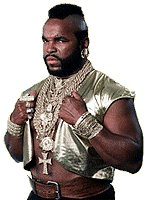 Today is Remembrance Day in Canada. For those of you who don't know, here is a little history on the poppy directly connected to the Canadian war effort in WWI:
Today is Remembrance Day in Canada. For those of you who don't know, here is a little history on the poppy directly connected to the Canadian war effort in WWI:
Colonel John McCrae, who was Professor of Medicine at McGill University in Canada before WW1 (joined the McGill faculty in 1900 after graduating from the University of Toronto), first described the red poppy, the Flanders’ poppy, as the flower of remembrance.
Although he had been a doctor for years and had served in the Boer War as a gunner, but went to France in WW1 as a medical officer with the first Canadian contingent.
It was impossible to get used to the suffering, the screams, and the blood here, and MAJ John McCrae had seen and heard enough in his dressing station to last him a lifetime. As a surgeon attached to the 1st Field Artillery Brigade, MAJ McCrae, had spent seventeen days treating injured men -- Canadians, British, Indians, French, and Germans -- in the Ypres salient.
It had been an ordeal that he had hardly thought possible. MAJ McCrae later wrote of it:
"I wish I could embody on paper some of the varied sensations of that seventeen days .... Seventeen days of Hades!At the end of the first day if anyone had told us we had to spend seventeen days there, we would have folded our hands and said it could not have been done "(1).
One death particularly affected MAJ McCrae. A young friend and former student, LT Alexis Helmer of Ottawa, had been killed by a shell burst on 2 May. LT Helmer was buried later that day in the little cemetery outside McCrae's dressing station, and McCrae had performed the funeral ceremony in the absence of the chaplain.
The next day, sitting on the back of an ambulance parked near the dressing station beside the Canal de l'Yser, just a few hundred yards north of Ypres, McCrae vented his anguish by composing a poem. At the second battle of Ypres in 1915, when in charge of a small first-aid post, he wrote in pencil on a page from his despatch book a poem that has come to be known as "Flanders’ Field" which described the poppies that marked the graves of soldiers killed fighting for their country. The major was no stranger to writing, having authored several medical texts besides dabbling in poetry. In the nearby cemetery, McCrae could see the wild poppies that sprang up in the ditches in that part of Europe, and he spent twenty minutes of precious rest time scribbling fifteen lines of verse in a notebook (2).
A young soldier watched him write it (written May 3, 1915 after the battle at Ypres). Cyril Allinson, a twenty-two year old sergeant major, was delivering mail that day when he spotted McCrae. The major looked up as Allinson approached, then went on writing while the sergeant major stood there quietly. "His face was very tired but calm as we wrote," Allinson recalled. "He looked around from time to time, his eyes straying to Helmer's grave." When he finished five minutes later, he took his mail from Allinson and, without saying a word, handed his pad to the young NCO. Allinson was moved by what he read:
The poem was exactly an exact description of the scene in front of us both. The word blow was not used in the first line though it was used later when the poem later appeared in Punch. But it was used in the second last line. He used the word blow in that line because the poppies actually were being blown that morning by a gentle east wind. It never occurred to me at that time that it would ever be published. It seemed to me just an exact description of the scene (3).
In fact, it was very nearly not published. Dissatisfied with it, McCrae tossed the poem away, but a fellow officer -- either LTCOL Edward Morrison, the former Ottawa newspaper editor who commanded the 1st Brigade of artillery (4), or LTCOL J.M. Elder (5), depending on which source is consulted -- retrieved it and sent it to newspapers in England. "The Spectator," in London, rejected it, but "Punch" published it on 8 December 1915.
McCrae's "In Flanders’ Fields" remains to this day one of the most memorable war poems ever written. It is a lasting legacy of the terrible battle in the Ypres salient in the spring of 1915.
In Flanders’ Fields
In Flanders’ Fields the poppies blow
Take up our quarrel with the foe:
To you from failing hands we throw
COL McCrae was wounded in May 1918 and was taken to one of the big hospitals on the coast of France. On the third evening he was wheeled to the balcony of his room to look over the sea towards the cliffs of Dover. The verses were obviously in his mind, for he said to the doctor "tell them, if ye break faith with us who die we shall not sleep." That same night COL McCrae died.
Each Remembrance Day the British Legion lays a wreath on his grave – a tribute to a great man whose thoughts were always for others.

